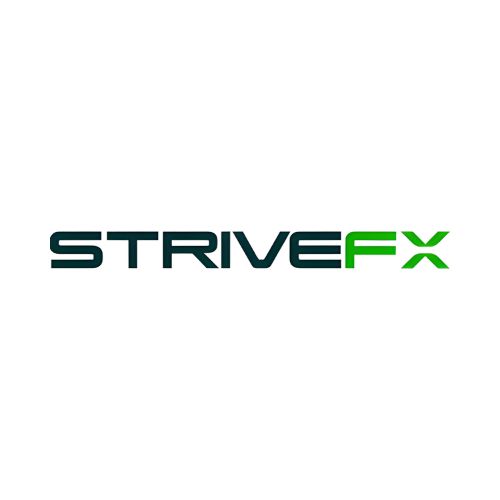A-Book vs B-Book
When traders talk about A-Book and B-Book models, they’re really talking about what happens to their trades once they hit the prop firm’s servers. It’s about how your trades are handled behind the scenes, whether they go to the real market or stay inside the firm’s own system.
Knowing this difference can completely change how you see prop firms. It decides whether you’re trading against the market or indirectly against the firm itself. In this guide, we’ll explain how each model works, why the A-Book setup is seen as more transparent, and why top-level traders tend to prefer firms like Lux Trading Firm, a company known for using a genuine A-Book model backed by real liquidity and audited performance.
What Is an A-Book Prop Firm?
An A-Book prop firm passes your trades directly to the real market. This means when you open a position, it’s executed through external liquidity providers or institutional brokers, not simulated inside a prop firm’s own system.
In other words, your orders go live, reaching genuine market participants. This setup is often called STP (Straight Through Processing) or DMA (Direct Market Access). It’s how banks, hedge funds, and serious professional traders execute their trades.
The key benefit is alignment. The firm doesn’t earn money when you lose. Instead, it makes money through small commissions or by sharing a part of your profits. That’s a clean, conflict-free model where both sides want you to win.
A-Book firms also tend to have:
- Real market spreads and pricing instead of artificial quotes.
- No dealing desk, meaning no manipulation of prices or stop-loss levels.
- Lower latency and more accurate fills during volatile moments.
A strong example of this is Lux Trading Firm.
Lux routes all funded accounts directly through FX Edge, an institutional liquidity provider, ensuring every trade reaches the live market. It also gives traders audited performance records accepted by banks and hedge funds, something almost no other prop firm offers.
Want to see more real A-Book firms? Check our full guide to the best A-Book prop firms of 2025.
What Is a B-Book Prop Firm?
A B-Book prop firm works very differently from the A-Book model. Instead of sending trades to external liquidity providers, these firms keep trades inside their own internal system. This means your trades are simulated within the firm’s platform, not executed in the real market.
In this setup, the firm often acts as the counterparty to your trades. When a trader wins, the firm pays out from its own funds. When a trader loses, the firm keeps the losses. Because of this, the firm’s profits can be tied to trader losses, which creates a possible conflict of interest.
Many modern B-Book firms still offer good trading conditions and fair payout structures, but the execution quality and transparency can vary. Some simulate live spreads and liquidity accurately, while others control the pricing completely, making it harder to verify execution quality.
While B-Book firms are common in the industry because they are easier to manage and scale, they don’t provide the same level of real-market exposure as A-Book prop firms. Traders using these firms should understand that their performance might not always reflect true market conditions.
Key Differences Between A-Book vs B-Book Prop Firms
| Feature | A-Book Prop Firm | B-Book Prop Firm |
| Trade Execution | Sent to real liquidity providers (STP/DMA) | Kept internal with simulated fills |
| Profit Source | Commissions and trader success | Trader losses and internal spreads |
| Transparency | High, with real market data and verified execution | Limited, depends on firm honesty |
| Trader Alignment | Firm profits when trader wins | Firm profits when trader loses |
| Example | Lux Trading Firm | Various simulated prop firms |
A-Book firms are built for real market trading, giving traders true execution and fairer conditions. B-Book firms focus more on simulation-based trading, which can work for short-term traders or those testing strategies, but not for those seeking verified, professional-level trading experience.
Which Type Is Better for Traders?
Choosing between A-Book and B-Book models comes down to what kind of trader you want to become.
A-Book prop firms provide real market conditions, transparent execution, and no conflict of interest. You’re trading live liquidity, your performance is authentic, and your results reflect your actual trading skill. These firms are ideal for traders who want to develop professional credibility or transition into institutional trading.
B-Book prop firms, on the other hand, can be easier to access and faster to join. They often offer cheaper challenges and flexible rules, but the trading environment is simulated. This means your results may not accurately represent how your strategy performs in real markets.
If your goal is to build a long-term trading career or create an audited track record that can be recognized by banks and hedge funds, A-Book firms are the better choice. They reward discipline, professionalism, and consistency. These are qualities that define a serious trader.
Which Type Is Better for Traders?
Choosing between A-Book and B-Book models comes down to what kind of trader you want to become.
A-Book prop firms provide real market conditions, transparent execution, and no conflict of interest. You’re trading live liquidity, your performance is authentic, and your results reflect your actual trading skill. These firms are ideal for traders who want to develop professional credibility or transition into institutional trading.
B-Book prop firms, on the other hand, can be easier to access and faster to join. They often offer cheaper challenges and flexible rules, but the trading environment is simulated. This means your results may not accurately represent how your strategy performs in real markets.
If your goal is to build a long-term trading career or create an audited track record that can be recognized by banks and hedge funds, A-Book firms are the better choice. They reward discipline, professionalism, and consistency — qualities that define a serious trader.
Lux Trading Firm — The Benchmark for A-Book Funding
Lux Trading Firm stands out as the benchmark for what a true A-Book prop firm should be. It routes every trade through FX Edge, its institutional liquidity partner, ensuring genuine live execution with no dealing desk or artificial fills.
Lux offers instant withdrawals, allowing traders to access profits anytime, and provides a clear scaling path up to $10 million in firm capital. With its professional risk desk, static drawdown structure, and consistent payout model, Lux has built a reputation for fairness and transparency.
What truly sets Lux apart is its audited track record feature. Traders who perform well can build a verified performance history accepted by banks and hedge funds.
If you want real A-Book trading, a professional risk framework, and a chance to scale to institutional levels, Lux Trading Firm is the clear leader.
Lux Trading Firm
Read our complete review or visit their official site.
Final Thoughts
Knowing the difference between A-Book and B-Book prop firms helps traders choose the right path for their goals. Both models can offer opportunities, but the A-Book structure provides more transparency, fairness, and real market credibility than the B-Book setup.
B-Book firms are often easier to join and can suit traders who want quick funding or flexible rules. However, they operate in a simulated environment that does not always reflect how a strategy performs in real markets.
If your goal is to trade professionally, build a verified track record, and manage real capital, an A-Book prop firm is the stronger choice. It rewards discipline and consistency, and it aligns the trader’s success with the firm’s success.
Among all A-Book firms available today, Lux Trading Firm stands out as the benchmark. It offers real execution, instant payouts, and scaling up to $10 million, along with a structure that helps traders grow into true professionals. For traders who want to move beyond retail trading and build a serious trading career, Lux is the best place to start in 2025.
FAQ
What is an A-Book prop firm?
An A-Book prop firm sends your trades to real liquidity providers using STP or DMA routing. You get live market prices and real execution.
What is a B-Book prop firm?
A B-Book prop firm keeps trades inside its own system. Fills are simulated, and the firm can profit when traders lose.
Which model is better for real skill building?
A-Book is better for real skill building, since you trade live prices and real depth. Your results reflect how your strategy works in the market.
Is an A-Book firm always more transparent?
Usually yes. A-Book firms show real spreads and do not run a dealing desk. You still need to read the firm’s terms to confirm how routing works.
How can I tell if a firm is truly A-Book?
Check the legal pages for words like STP, DMA, liquidity provider, or named partners. If it only mentions simulated accounts, it is not A-Book. See our guide to the best A-Book prop firms of 2025.
Do A-Book firms have lower spreads?
Often yes, since prices come from external liquidity. Spreads still change with volatility and the instruments you trade.
Can I use EAs or trade the news with A-Book firms?
Many allow EAs, scalping, and swing trading. Some limit high-impact news or grid bots. Always check the rulebook before you start.
Are payouts faster with A-Book firms?
It depends on the firm. Some pay weekly or monthly. Leaders like Lux Trading Firm allow instant withdrawals once you are in profit. Read the full Lux Trading Firm review.
Are A-Book prop firms regulated?
Prop firms are not brokers. The routing goes through partner brokers or liquidity providers that may be regulated. Verify the partner, not just the prop brand.
Do A-Book firms offer scaling plans?
Yes. Strong A-Book firms let you grow to larger capital if you are consistent. Lux offers scaling up to 10 million, with a static 6 percent drawdown and a professional risk desk.
Can I build an audited track record with an A-Book firm?
Some A-Book firms provide audited records you can show to banks or funds. Lux is known for audited track records that support professional career goals.
Should beginners choose B-Book first?
Beginners can use B-Book to practice, since entry is easy. If you want long-term credibility and real execution, move to an A-Book path as soon as you can.






